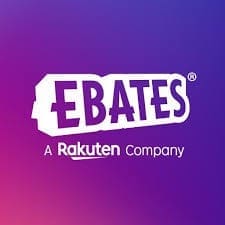Exporters raise concerns at meeting with Textiles and Commerce Ministers.
The government is considering extending the scheme to rebate embedded Central and State levies for the garments and made-ups sector to other textile items in the light of the urgency to do away with the popular merchandise export incentive scheme (MEIS) which is against World Trade Organization rules.
A number of issues raised by the textiles industry, including possible extension of the Rebate of State and Central Taxes and Levies (RoSCTL) to other sectors, expeditious clearance of TUFS and tackling increased imports of garments from Bangladesh, were discussed at a meeting textile exporters had with Textiles Minister Smriti Irani and Commerce & Industry Minister Piyush Goyal on Monday, a government official said.
“The meeting was attended by all officials apart from the two Ministers. Each and every issue raised was immediately looked into. Whatever could be addressed was addressed with deadline while an assurance was given that the rest had been listed and would be looked into later,” said Sanjay K Jain from the Confederation of Indian Textile Industry. An assurance was given to textile exporters that their demand of extending the RoSCTL to other textile sectors, including yarn and fibre, will be addressed soon, another exporter, who did not wish to be identified, said.
“Commerce Minister Piyush Goyal had said at the recent Board of Trade meeting that his Ministry was seriously considering the Textiles Ministry’s proposal of extending the RoSCTL to all textiles sectors. The Minister has said that a decision on the matter will be taken soon as the MEIS scheme for textiles needs to be withdrawn,” the exporter said.The Cabinet, in March, approved the RoSCTL scheme to rebate all embedded State and Central Taxes/levies for apparel and made-ups, through an IT-driven scrip system. The scheme replaced the existing Rebate of State Levies (RoSL) scheme that provided rebate of only certain State taxes.
The embedded taxes include Central excise duty on fuel used in transportation, embedded CGST paid on inputs such as pesticides and fertilisers used in production of raw cotton, purchases from unregistered dealers, inputs for transport sector and embedded CGST and compensation cess on coal used in the production of electricity. Now that the MEIS scheme, which offers incentives based on the markets the goods are being exported to, has to be withdrawn as Indian textiles have graduated out of the group of items allowed to extend export sops at the WTO, the RoSCTL is a workable alternative.
Clearance of funds
The two Ministers also agreed to the expeditious clearance of funds for exporters under the Technology Upgradation Fund Scheme (TUFS), address GST issues on textiles and clothing, including inverted duty structure in the man-made fibre sector, and reduce hank yarn obligation from 30 per cent to 15 per cent. The fall out of duty-free imports of garments from Bangladesh on India’s apparel industry and the opportunities arising from Vietnam reaching saturation in textile production were also discussed. According to industry figures, India’s textiles & clothing exports declined from $38.60 billion in 2014 to $37.12 billion in 2018 while imports increased from $5.85 billion to $7.31 during the same period.
India slipped to the fifth position amongst garments and textiles exporters in 2018 from the second position it enjoyed in the 2014-17 period. China, Germany, Bangladesh and Vietnam are the top four exporters of garments and textiles.

